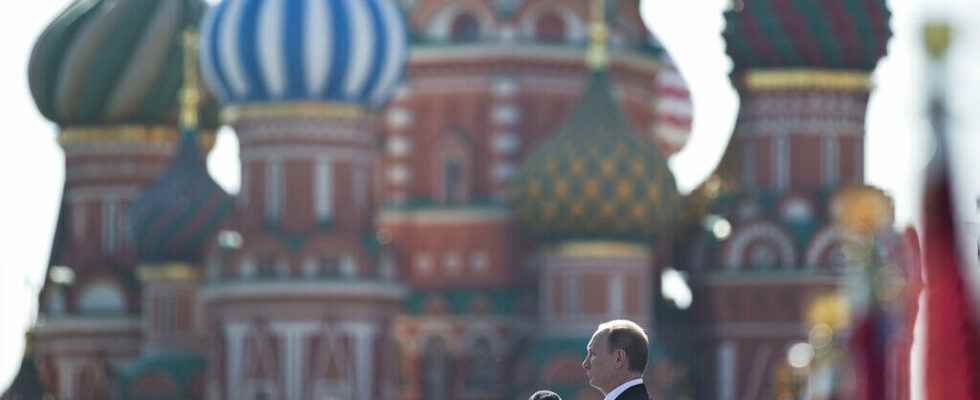According to information disclosed by the British newspaper The Guardian, 3.8 million Russians have already left the country out of approximately 140 million inhabitants; that’s more than 2% of the population. A figure which reflects a phenomenon, that of Russian emigration which has existed for years but which has taken on a greater scale with the war in Ukraine. Specialist in Russia, Anne Le Huérou, lecturer at the University of Paris-Nanterre, answers questions from RFI.
RFI: 3.8 million Russians have already left the country out of approximately 140 million inhabitants, that’s more than 2%. Is this a number that is surprising ?
Anne Le Huerou: That number surprises me a bit. I had heard of several hundred thousand [de personnes], but not to that extent. It should be understood that for quite a few years there has been an often hidden emigration from the Russian Federation, even since the penultimate major political crisis that Russia experienced, that is to say in 2011-2012 with the major demonstrations following the rigged Duma elections.
What is the profile of the Russians who are leaving? Are they all opponents of President Vladimir Putin or are some also fleeing an economic climate that is deteriorating?
Indeed, there are articles that came out in the press on in particular portraits of exiles in Tbilisi in Georgia, since it is one of the fairly major places of current Russian exile. There they are rather business leaders, people who work in new technologies. They are also people who can continue to work in the companies where they were employed, and this can also be the case for those who leave the country for political reasons or disagreement: human rights defenders, civil society activists, lawyers, jurists who are in exile and who continue to do their work of defending the rights of the Russians who remain.
This exodus of Russians, often young and well qualified, for political or economic reasons, is rather well seen by the Kremlin.
This is a phenomenon which is not entirely new and which is also somewhat the result of an almost deliberate policy by Russia, that is to say of making people leave, in particular of making them fear with all these legislations, with searches, for example, at home after the first disputes. If we don’t arrest the person right away and take their passport, it’s almost seen as a signal to leave.
For the Russian authorities, it’s a “less headache” to have people that we won’t need to arrest, against whom we won’t need to carry out long legal proceedings that will mobilize judges, prosecutors, and who will still make a little noise in the media. So we get rid of the problem in a way by letting people go outside and better then being able to accuse them of being this famous “fifth column”. Somehow, there is a sort of double benefit for the authorities, at least in the short term and in their logic of getting rid of these people.
What are the consequences of this exodus for Russian society? Can we already speak of a “ brain drain »?
Yes. I think we can absolutely speak of a “brain drain”. It is also precisely the people who are often the most opponents and the most opposed who leave. It should also be noted that what has been happening since February 24 did not start in cloudless skies and that, for several years, the proliferation of very repressive legislation against defenders of rights, against journalists, has already led to this Exodus.
So, I don’t know if that’s what is also counted in the statistics of the Guardian today, but there are already communities in exile that have been formed, especially and in particular in the Baltic countries in recent years. It was really the preferred base. There were a lot of them in Berlin too and in other cities [allemandes]a little bit in Finland, a little bit in Sweden, in Norway.
Today, these are primarily the countries where you can go without needing a visa. So, Armenia, the easiest country to access because you can go there without an external passport. It is the preferred destination if we really have to leave in disaster. Georgia too, even if you have to go through Istanbul. Turkey precisely, but also Serbia, Montenegro. And then, for people who are further east, the Urals, Siberia, there is Kazakhstan. These are indeed specific profiles, profiles which, obviously, if the conflict lasts and these people remain in exile, Russia will miss both technically, professionally and also, one could say, intellectually.
